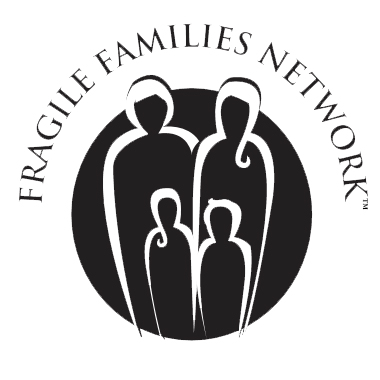Are We Truly Listening? Understanding Why Most Relatives Avoid Formal Kinship Care

Nationwide, for every 19 children living with relatives, only 1 is part of the child welfare system. This stark disparity begs a critical question: Why are 18 out of 19 children in kinship care not part of the formal system? While efforts are being made to streamline the process for families to enter kinship care, are we truly addressing the concerns of the families themselves? What are we doing to listen to and support these grandfamily caregivers?
18 Reasons Relatives Avoid Formal Kinship Care
- Economic Constraints: Licensing requirements often come with financial burdens, such as home modifications and additional training, which many families cannot afford (ASPE) (ChildTrends).
- Complexity and Burdensomeness of the System: The licensing process for becoming a foster parent is seen as overly complicated and time-consuming, deterring many caregivers (ASPE) (Annie E. Casey Foundation).
- Immediate Safety Concerns: Relatives often take in children on short notice to ensure their immediate safety, prioritizing immediate care over engaging in a lengthy formal process (ASPE).
- Emotional and Relational Dynamics: Families may prefer informal arrangements to maintain existing emotional and relational dynamics without the perceived interference from child welfare agencies (ChildTrends) (Annie E. Casey Foundation).
- Mistrust of Authorities: Historical and personal negative experiences with government authorities create a deep-seated mistrust that discourages formal engagement (ChildTrends) (ASPE).
- Fear of Legal Complications: Potential legal repercussions if they do not meet all regulatory requirements can deter relatives from formalizing their caregiving arrangements (ASPE).
- Desire for Autonomy: Caregivers often want to retain full decision-making authority over the child’s upbringing without state mandates or oversight (ChildTrends) (Annie E. Casey Foundation).
- Geographical Mobility: Differing state laws and regulations can complicate the process for caregivers living in different states or regions, leading to a preference for informal arrangements (ChildTrends).
- Fear of Losing the Child: Engaging with the child welfare system could result in losing custody of the child if the caregivers do not meet all the criteria set by the state (ChildTrends) (ASPE).
- Health and Age of Caregivers: Older relatives or those with health issues may feel incapable of meeting the rigorous standards required for formal kinship care (ChildTrends) (Annie E. Casey Foundation).
- Cultural Sensitivities: Cultural norms and values might make formalizing caregiving arrangements seem unnecessary or inappropriate (ASPE) (Annie E. Casey Foundation).
- Desire to Preserve Family Unity: Families worry that formal intervention could disrupt family unity and stability (ChildTrends).
- Limited Awareness of Available Resources: Many kinship caregivers are unaware of the resources and support available to them if they formalize their caregiving arrangement (ASPE).
- Fear of Stigma and Involvement with Child Welfare System: The stigma associated with child welfare involvement and fears about potential consequences can discourage formalization (ASPE) (Annie E. Casey Foundation).
- Perceived Red Tape: The perceived bureaucratic hurdles and red tape associated with formal kinship care can deter relatives from applying (ASPE) (Annie E. Casey Foundation).
- Previous Negative Experiences: Families with prior negative interactions with the child welfare system may be particularly hesitant to engage again (ChildTrends) (Annie E. Casey Foundation).
- Immediate Needs and Emotional Burden: The sudden responsibility of caregiving can be overwhelming, leading caregivers to prioritize immediate needs over engaging with formal systems (ASPE).
- Geographic Variations in Support: Variations in support services between urban and rural areas can influence the decision to remain informal (ASPE) (Annie E. Casey Foundation).
Beyond Simplifying Entry: Addressing the Real Issues
While making it easier to enter kinship care is important, it is equally vital to address the underlying issues that prevent families from engaging with the child welfare system. Policymakers need to:
- Improve Economic Support: Ensure financial support for informal caregivers to reduce the burden of becoming licensed.
- Streamline Processes: Simplify the licensing process without compromising the safety and well-being of the child.
- Enhance Communication and Trust: Build trust between families and child welfare agencies through transparent communication and community engagement.
- Cultural Competence: Tailor child welfare practices to respect and integrate cultural values and norms.
- Increase Awareness: Provide comprehensive information about the resources and benefits available to formal kinship caregivers.
Listening to Grandfamily Caregivers: A Call to Action
Grandfamily caregivers are crucial in the lives of children, yet their voices often go unheard. It is time to involve them in the conversation. Engaging with families who are currently raising their relatives’ children, as well as those with lived experience, will provide valuable insights into their needs and challenges.
By genuinely listening and responding to the concerns of grandfamily caregivers, we can create a more supportive and effective child welfare system that benefits all children. It’s time to move beyond simplifying entry into kinship care and start addressing the real issues that families face.
Let’s engage grandfamily caregivers in policy-making processes, ensuring their experiences and insights shape the future of kinship care. It’s not enough to involve only child welfare professionals; we must listen to and support those who are on the front lines, caring for their relatives’ children every day.
©2024 Fragile Families NETWORK







